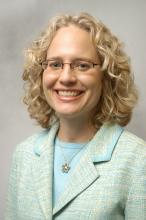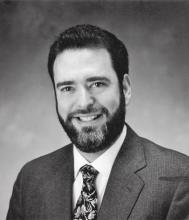
Ophthalmology Services
Ophthalmology is the branch of medicine specializing in the anatomy, function and diseases of the eye. Medical doctors who specialize in diagnosing and treating eye problems, diseases and injuries are known as ophthalmologists.
Common Eye Problems
Some of the many reasons why you may need to see an ophthalmologist include the following:
- Blood in the white of the eye
- Cataracts
- Color blindness
- Diabetic retinopathy
- Diseases of the retina
- Drainage from the eyes
- Eyelid problems
- Eyestrain or vision changes
- Glaucoma
- Inflammation of the middle layer of the eye
- Macular degeneration
- Misaligned eyes or strabismus
- Night blindness
- Red eyes that may be caused by infection, inflammation, or tumors
Ophthalmologists
At UHS, our ophthalmologists are board-certified surgeons who specialize in the diagnosis and treatment of a wide range of eye disorders. They blend expert clinical care with the latest medical technologies for the benefit of our patients.
UHS News
-
 One local heart patient’s journey to a healthier futureFebruary 23, 2026
One local heart patient’s journey to a healthier futureFebruary 23, 2026Your heart works hard for you every day. From keeping blood flowing to supporting your energy and overall well-being, your heart is truly at the center of your health. That’s why having access to expert cardiac care close to home is so important.
-
 UHS hosts BLI's 2026 Healthcare DayFebruary 20, 2026
UHS hosts BLI's 2026 Healthcare DayFebruary 20, 2026UHS proudly hosted the Broome Leadership Institute’s (BLI) 2026 Healthcare Day on Feb. 19, welcoming the Class of 2026 for a full-day, immersive look into how UHS cares for the community and supports the region’s evolving healthcare needs.
-
 Parking, entrance changes amid renovations at UHS Delaware Valley HospitalFebruary 19, 2026
Parking, entrance changes amid renovations at UHS Delaware Valley HospitalFebruary 19, 2026As work continues on the creation of a state-of-the-art, four-story Medical Neighborhood at UHS Delaware Valley Hospital, the following changes are now in effect regarding parking and how you will enter the hospital.
-
 UHS Launches MyChart “On My Way” for lab appointment online schedulingFebruary 17, 2026
UHS Launches MyChart “On My Way” for lab appointment online schedulingFebruary 17, 2026UHS has introduced a new digital feature designed to make laboratory visits faster, easier, and more convenient for patients. Patients can now use MyChart’s “On My Way” to save your spot in line for a future time that day.





